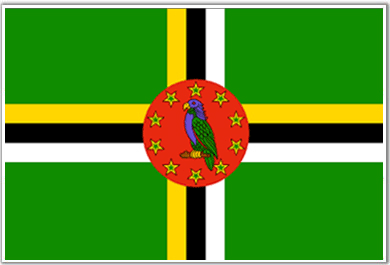Carnival in the West Indies is like a tree with buttress roots.
History will force one to see that Carnival did not begin with our African ancestors. Rather, the Europeans were known to have celebrated this ‘freedom of the flesh’ prior to the Lenten season since the 4th
Century. The Africans however, being enslaved in the Caribbean, were
known to have carnival since emancipation in 1838. It is no wonder
people have argued whether the festival is of historical or religious
origin. Truth is though, this festival, as celebrated in Dominica,
is a combination of both history and religion. The Europeans, most of
whom were Roman Catholics, had celebrated carnival as the day before
they would stay away from meat, as well as all fleshly desires. Africans
on the other hand, are well known for their pulsating rhythms as they
shake their bodies to the beat of their drums. Both people lived in the
West Indies during the slavery period, and so, Carnival celebration in Dominica arose as a result of the influence both ethnic groups.
On July 31, 1834 the Emancipation Act came into effect. With this, as
of midnight, the now ex-slaves took to the streets in celebration.
However, the slaves were soon brought back into a state of slavery
without the chains, as they were made dependent on the white planters,
and felt forced to work on the plantations. This system of
Apprenticeship, a period in which the ex-slaves would gradually grow
into a state of self-sufficiency, was supposed to last until 1840.
However, visits by special magistrates to the Caribbean during that
period proved that they were, hypothetically speaking, still slaves,
because of how the planters treated them. The metropolitan countries
then aborted the apprenticeship system two years earlier, bringing it to
an end as of August 1, 1838.
At midnight, having thanked their gods for freedom, slaves took
to the streets once more in emancipation celebrations. Shouts of joy
rung across the islands of the Caribbean as slaves shook their bodies to
the rhythms of their drums. This celebration which is in August, while
in some countries like Antigua, is still called Carnival, in Dominica, it is known as Emancipation celebration. Dominica,
like Trinidad, had chosen to walk the ways of the Roman Catholic
Europeans. Carnival celebrations was therefore made a religious festival
whereby citizens could free the flesh, and revel for, come Ash
Wednesday, the Lenten season would commence, and they would have to put
away all fleshly desires for forty days and nights. And so it is,
Carnival in Dominica came about, to run for about thirty days before Ash Wednesday.

No comments:
Post a Comment